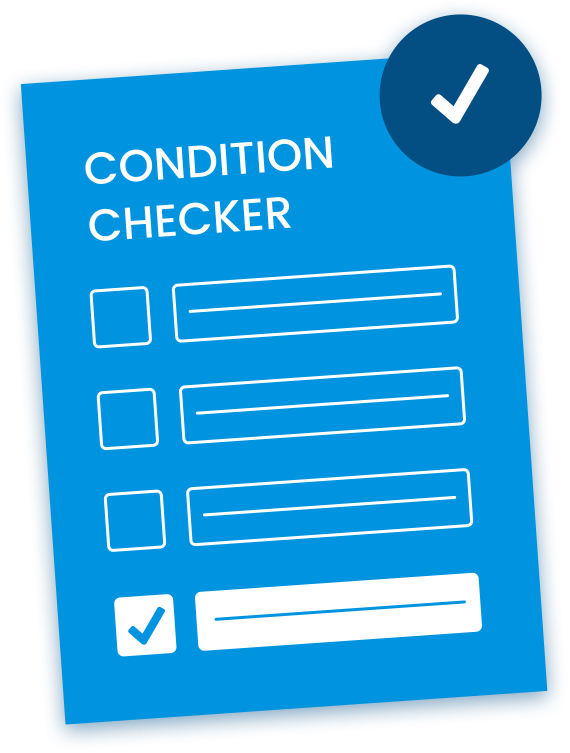Cervical Herniated Disc
Find out which possible conditions you may be suffering from by trying our 2-min Guided Pain Assessment Form!





A cervical herniated disc is a common cause of neck pain among adults. This condition occurs when the soft inner core of a spinal disc in the neck area protrudes through a tear in the outer layer, putting pressure on the adjacent nerves or spinal cord. The bulging can cause pain, numbness, and weakness in the shoulder, arm, and neck.
A cervical herniated disc occurs when the “cushioning” disc between the vertebrae in the neck becomes damaged and protrudes outward. When this happens, it brings about a range of symptoms, which can include:
Note that while you may not have all these symptoms, anyone with more than three signs of a herniated disc should see a spine specialist for a proper diagnosis to make sure you get the treatment you may need for pain relief.

Find your condition with our 2-minute Condition Checker.
A cervical herniated disc diagnosis is made through physical examination, medical history, and diagnostic tests. Your spine surgeon will assess your pain by observing symptoms like neck and hand pain, as well as weakness or numbness in the arms. If certain positions or movements aggravate the pain, it could indicate a cervical herniated disc.
They may also perform a neurological examination to assess your reflexes, muscle strength, and sensation. Diagnosis of a cervical herniated disc is critical in determining the type of herniated disc and its severity. Electromyography (EMG) and nerve conduction studies can be employed to evaluate nerve function in the arms and hands or detect muscle weakness and damage caused by a cervical herniated disc.
An accurate evaluation plays a pivotal role in identifying the specific type and severity of the cervical herniated disc. Without a proper diagnosis, patients risk worsening their symptoms by engaging in activities that exacerbate the condition.

Discover which treatment options are right for you with our Treatment Finder.
The gravity of symptoms, the extent of the disc herniation, and the patient’s overall health all influence treatment alternatives for a cervical herniated disc. Here are some of the most common options for this condition:
Treatment for cervical herniated discs should be tailored to the patient’s needs and condition. As such, a thorough evaluation is necessary to determine the most appropriate treatment.
Back pain is a common problem affecting millions of Americans. Poor posture, injury, muscle strain, spinal stenosis, osteoporosis, herniated discs, etc., can all contribute to its onset. Treatment varies subject to the underlying cause, but numerous options are available, as outlined throughout this article. Anyone suspecting a herniated disc is the cause of their back pain should consult an orthopedic surgeon immediately.
NJ Spine & Orthopedic is a specialized medical center providing a broad spectrum of services to help patients with various back, neck, and spine disorders. Our skilled spine specialists and compassionate Concierge Team will gladly assess your condition and offer a personalized treatment plan to relieve your pain. Please call (866) 553-0612 or fill out our online contact form to speak to a doctor today.

Determine your eligibility with our Candidacy Verification.
CONTACT
Phone: 855.586.2615
Current Clients: 855.706.1011
NJ Spine and Orthopedic is dedicated to delivering minimally invasive laser spine surgeries to eliminate the pain, discomfort, and dysfunction of numerous conditions of the neck and back.
OVERVIEW
LOCATIONS
Copyright © 2025 NJ Spine & Orthopedic